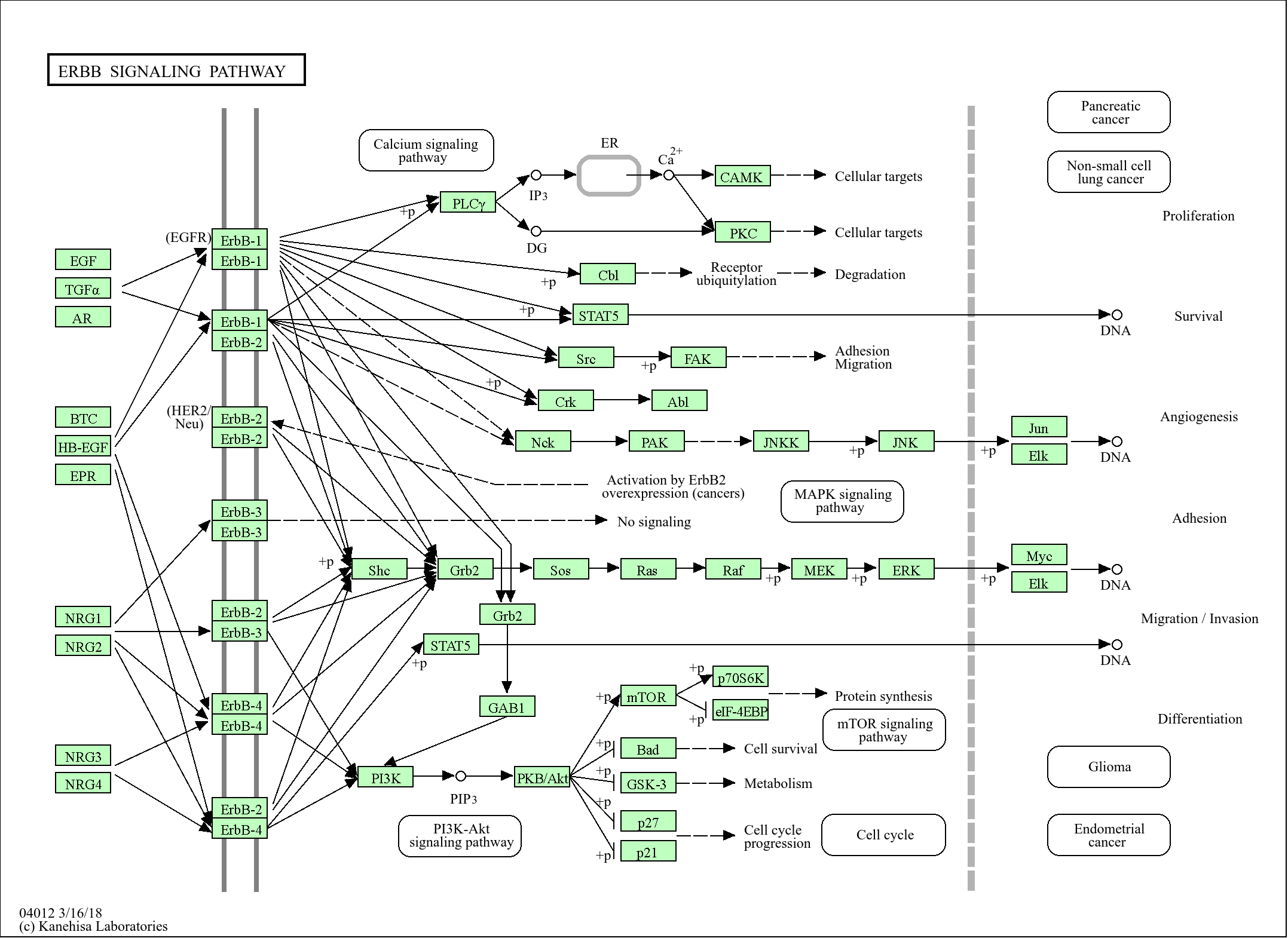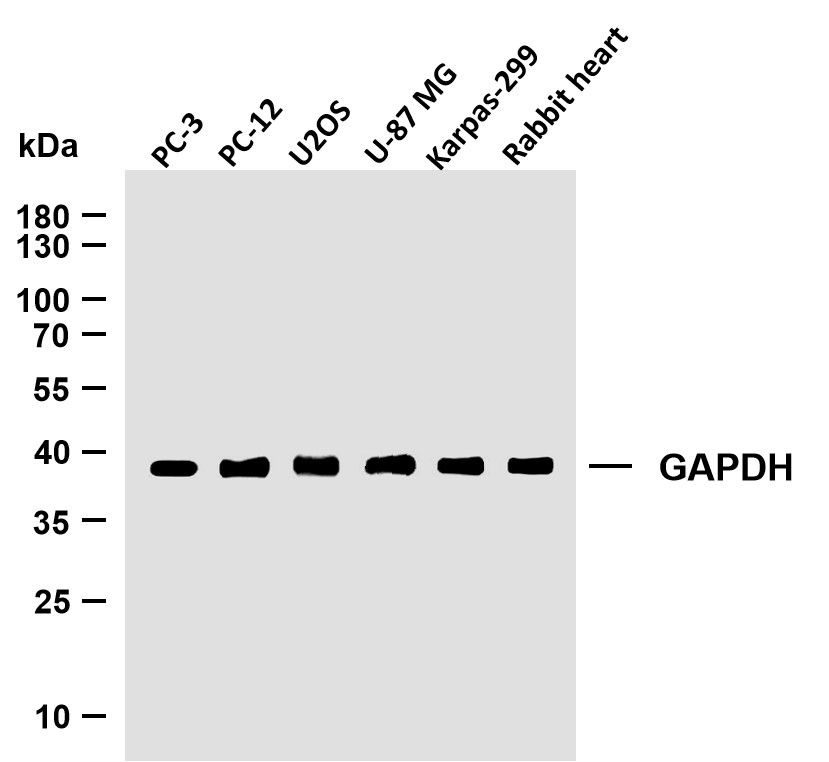
Catalog: YM1237
Size
Price
Status
Qty.
200μL
$450.00
3 weeks
0
100μL
$280.00
3 weeks
0
40μL
$160.00
3 weeks
0
Add to cart


Collected


Collect
Main Information
Target
Mannose Phosphate Isomerase
Host Species
Mouse
Reactivity
Human, Rat
Applications
WB, ICC
MW
54kD (Observed)
Conjugate/Modification
Unmodified
Detailed Information
Recommended Dilution Ratio
WB 1:1000; ICC 1:300
Formulation
Liquid in PBS containing 50% glycerol, 0.5% BSA and 0.02% sodium azide.
Specificity
This antibody detects endogenous levels of Mannose Phosphate Isomerase and does not cross-react with related proteins.
Purification
The antibody was affinity-purified from mouse ascites by affinity-chromatography using epitope-specific immunogen.
Storage
-15°C to -25°C/1 year(Do not lower than -25°C)
MW(Observed)
54kD
Modification
Unmodified
Clonality
Monoclonal
Related Products
Antigen&Target Information
Immunogen:
Purified recombinant human Mannose Phosphate Isomerase protein fragments expressed in E.coli.
show all
Specificity:
This antibody detects endogenous levels of Mannose Phosphate Isomerase and does not cross-react with related proteins.
show all
Gene Name:
mpi
show all
Other Name:
PMI1 ;
CDG1B ;
FLJ39201 ;
Mannose 6 phosphate isomerase ;
Mannose-6-phosphate isomerase ;
MANNOSEPHOSPHATE ISOMERASE ;
MGC94106 ;
MPI ;
MPI_HUMAN ;
Phosphohexomutase ;
phosphomannose isomerase 1 ;
Phosphomannose isomerase ;
PMI ;
PMI1.
CDG1B ;
FLJ39201 ;
Mannose 6 phosphate isomerase ;
Mannose-6-phosphate isomerase ;
MANNOSEPHOSPHATE ISOMERASE ;
MGC94106 ;
MPI ;
MPI_HUMAN ;
Phosphohexomutase ;
phosphomannose isomerase 1 ;
Phosphomannose isomerase ;
PMI ;
PMI1.
show all
Background:
Phosphomannose isomerase catalyzes the interconversion of fructose-6-phosphate and mannose-6-phosphate and plays a critical role in maintaining the supply of D-mannose derivatives, which are required for most glycosylation reactions. Mutations in the MPI gene were found in patients with carbohydrate-deficient glycoprotein syndrome, type Ib. Alternative splicing results in multiple transcript variants. [provided by RefSeq, Jan 2014],
show all
Function:
Catalytic activity:D-mannose 6-phosphate = D-fructose 6-phosphate.,cofactor:Binds 1 zinc ion per subunit.,Disease:Defects in MPI are the cause of congenital disorder of glycosylation type 1B (CDG1B) [MIM:602579]; also known as carbohydrate-deficient glycoprotein syndrome type Ib (CDGS1B). Congenital disorders of glycosylation are metabolic deficiencies in glycoprotein biosynthesis that usually cause severe mental and psychomotor retardation. They are characterized by under-glycosylated serum glycoproteins. CDG1B is clinically characterized by protein-losing enteropathy.,Function:Involved in the synthesis of the GDP-mannose and dolichol-phosphate-mannose required for a number of critical mannosyl transfer reactions.,pathway:Nucleotide-sugar biosynthesis; GDP-D-mannose biosynthesis; alpha-D-mannose 1-phosphate from D-fructose 6-phosphate: step 1/2.,similarity:Belongs to the mannose-6-phosphate isomerase type 1 family.,tissue specificity:Expressed in all tissues, but more abundant in heart, brain and skeletal muscle.,
show all
Cellular Localization:
Cytoplasm .
show all
Tissue Expression:
Expressed in all tissues, but more abundant in heart, brain and skeletal muscle.
show all
Research Areas:
>>Fructose and mannose metabolism ;
>>Amino sugar and nucleotide sugar metabolism ;
>>Metabolic pathways ;
>>Biosynthesis of cofactors ;
>>Biosynthesis of nucleotide sugars
>>Amino sugar and nucleotide sugar metabolism ;
>>Metabolic pathways ;
>>Biosynthesis of cofactors ;
>>Biosynthesis of nucleotide sugars
show all
Reference Citation({{totalcount}})
Catalog: YM1237
Size
Price
Status
Qty.
200μL
$450.00
3 weeks
0
100μL
$280.00
3 weeks
0
40μL
$160.00
3 weeks
0
Add to cart


Collected


Collect
Recently Viewed Products
Clear allPRODUCTS
CUSTOMIZED
ABOUT US
Toggle night Mode
{{pinfoXq.title || ''}}
Catalog: {{pinfoXq.catalog || ''}}
Filter:
All
{{item.name}}
{{pinfo.title}}
-{{pinfo.catalog}}
Main Information
Target
{{pinfo.target}}
Reactivity
{{pinfo.react}}
Applications
{{pinfo.applicat}}
Conjugate/Modification
{{pinfo.coupling}}/{{pinfo.modific}}
MW (kDa)
{{pinfo.mwcalc}}
Host Species
{{pinfo.hostspec}}
Isotype
{{pinfo.isotype}}
Product {{index}}/{{pcount}}
Prev
Next
{{pvTitle}}
Scroll wheel zooms the picture
{{pvDescr}}


















